Table of Contents
What’s your first meal after you get home from the gym or running? You might reach for whatever you see first, or you might know exactly what your body needs after a workout and tailor your meals accordingly. If you’re not so sure about your post-workout diet and want to give your efforts the maximum boost towards faster results, you need to pay a little more attention to your post-workout food choices. This will improve recovery and prepare your body for the next workout, where you will then perform even better.
If you are exercising and trying to lose weight, improve performance or gain muscle, you should first of all pay attention to your daily diet. Even the most perfect post-workout meal won’t save you if you don’t address your diet for the rest of the day. Only with a well planned diet will you get all the benefits of an ideal post-workout food choices and supplementation.
Why eat after exercise?
A recreational athlete who goes for a run three times a week and an endurance or strength athlete who prepares for competitions, for example, in two phases, will approach their post-workout diet differently. It is also important to mention that athletes have different goals. Some exercise for fun and to feel good, others try to lose weight through exercise, and others strive for the best possible sports performance. The more demanding the athlete’s training schedule, the more important supplements and post-workout meals become.

What will post-workout meals and dietary supplements help with?
A post-workout meal is not just a reward for your efforts. It is a way to quickly and efficiently replenish energy and nutrient stores that the body needs for proper recovery.
1. Replenishes energy
Muscles use the stored carbohydrate glycogen for their function, which serves as a source of energy. This can be depleted quite quickly during training, especially in the case of demanding and intense sporting activities. Fast carbohydrates after exercise followed by a complex meal for overall body recovery will help with its effective replenishment. [1-4]
2. Protects muscles
After exercise, the breakdown (catabolism) of muscle tissue prevails over its formation (anabolism). In the body, the breakdown of muscle tissue occurs for the gain of essential amino acids and the regeneration of overloaded muscles. This can be prevented by the intake of high quality and rapidly digestible proteins, which are the source of these amino acids. These can then help tip the scales of catabolism and anabolism in the right direction. [1-4]
3. Promotes muscle growth
In addition to protecting muscles, protein is also essential for muscle growth. Thanks to a higher protein intake after exercise, the body suddenly has ample building blocks not only to repair muscle fibres damaged by exercise, but also for their development (hypertrophy and strength growth). [1-4]
4. Replenishes lost fluids and electrolytes
During strenuous workouts, sweating leads to higher losses of fluids and minerals such as magnesium, sodium, potassium, calcium or chloride. Sodium and potassium are the two main electrolytes that take care of optimal hydration in the body. In addition, these minerals are important for muscle function, so it is crucial to maintain a balanced amount of these in the body. Thus, by drinking fluids containing these electrolytes, you will effectively support proper hydration of the body. [1–4]

5. Reduces muscle soreness after exercise
Post-workout muscle soreness or DOMS (Delayed Onset Muscle Soreness) is mainly caused by damage to muscle fibres. Thanks to the rapid intake of proteins, vitamins and other substances, you will support the processes related to the healing of muscle tissue and overall recovery. [1-4]
6. Effectively protects from injury at your next workout
Sufficient energy and nutrients are important for the proper function of muscles and the entire musculoskeletal system. If you have two training sessions in one day, without sufficient energy replenishment you are likely to become fatigued or exhausted, resulting in a higher risk of injury. [1-4]
Reduced mineral stores and dehydration can also cause muscle cramps or difficulty concentrating on performance, which also pose a risk of injury. Here again, post-workout nutrition can help and significantly reduce or even eliminate these risks. [1-4]
7. Supports immune function
After a strenuous workout, immunity can be weakened, resulting in a higher risk of illness. This is especially the case after prolonged endurance exercise, which depletes energy reserves. In addition to energy, the immune system may also lack amino acids that are important for its function. Early intake of rapidly digestible carbohydrates and protein after exercise can prevent this. [1-4]
All the benefits of post-workout nutrition have an impact not only on performance but also on overall health. They are vital for pro runners, cyclists, bodybuilders, weightlifters, fitness enthusiasts and other active individuals who regard sport as part of their lifestyle.
Some of these benefits will be more important to you than others. If you do strength training you will appreciate the effect of post-workout nutrition on muscle growth more than, say, competitive cyclists or runners. For them, on the other hand, efficient energy replenishment is more important and determines their athletic performance.
The importance of post-workout supplementation and diet for strength athletes
If you exercise with your bodyweight, dumbbells or kettlebells, your goal is probably mainly to tone your physique, grow muscles and strength. With a well-adjusted post-workout food choices and supplements, you can effectively support these goals. This is because small micro tears in the muscles start to heal (regenerate) after the workout is over. As a result, the muscle strengthens and grows. However, this cannot be done without sufficient amount of protein, which is the source of the most important building material for muscles – amino acids. [5-6]
Protein after a workout: Builds bigger and stronger muscles
For muscle growth, it is essential to eat foods containing protein throughout the day. This is the only way your body will have adequate building blocks (amino acids) to repair and build muscle mass. Another step you can take to make this process even more efficient is to consume protein right after your workout.
At this time, intense muscle rebuilding (regeneration and growth) takes place. This is an opportunity that you can use to your advantage with timely protein intake to promote muscle hypertrophy. Increased muscle protein production in the body takes place 24 – 48 hours after exercise, which can be seen to some extent as the legendary anabolic window. It is the ideal time to replenish protein and begin rapid recovery of damaged muscles. [5-6]
How much protein should you consume to support muscle recovery and growth?
- It is recommended to take 20 – 40g of protein or 10 – 12g of essential amino acids (EAA, BCAA) within two hours after exercise.
- A protein drink provides rapid protein replenishment. For example, whey protein with some leucine or BCAA are perfect for maximum anabolic potential.
- Over the course of the day, most strength athletes only need about 1.4 – 2g of protein per kg of body weight (BW). [5, 7]
If you’re wondering what else will support muscle growth, check out our article What to Eat and How to Exercise to Finally Gain Muscle?
You might be interested in these products:
The importance of post-workout supplementation and diet for endurance athletes
Timely post-workout nutrient intake will also help runners, cyclists, swimmers, and other aerobic sports enthusiasts perform better. Such athletes especially need sufficient energy to cope with long and demanding workouts. During these, the muscles mainly use the stored carbohydrate glycogen for their function. The more intense the workload, the faster the body depletes glycogen, which brings a decrease in performance. [5-6]
Carbohydrates after a workout: Rapid glycogen recovery
Carbohydrates help athletes replenish glycogen stores. This is why endurance athletes often have a higher carbohydrate intake. Increased intake of fast carbohydrates right after exercise helps to replenish this energy source. This is because within two hours after exercise, the body has ideal conditions for glycogen production and storage in the muscles. The transporters that get this nutrient to the hungry muscles are on high alert, just waiting for their cargo to be delivered to the target “muscle station”. [5-6]
Rapid carbohydrate replenishment is especially important for strength athletes or endurance athletes who exercise in two phases. This will help them speed up recovery and gain energy for their next workout. The same is also true for recreational athletes who go to the gym in the morning and then go for a run in the afternoon.
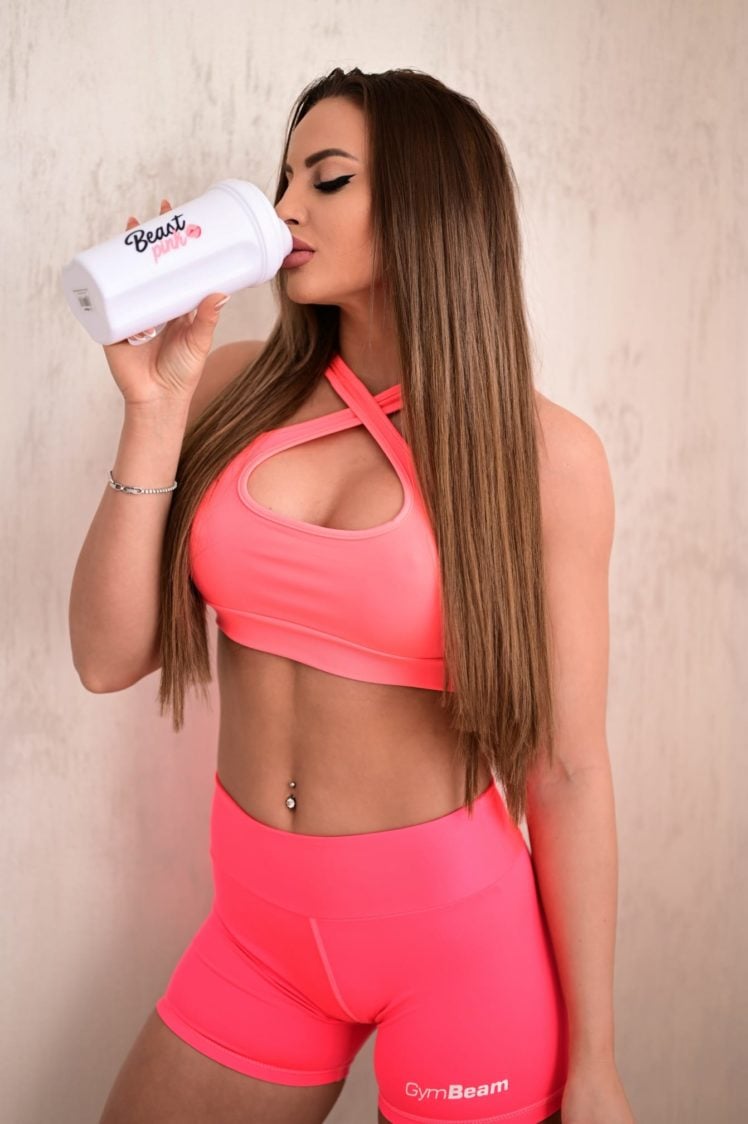
How much carbohydrate should you take in to maximize glycogen stores?
- If you have another training session within four hours and want to restore glycogen stores as quickly as possible, it is recommended to take in 1.2g of carbohydrate per kg of body weight (BW) every hour. Or a combination of 0.8g of carbohydrate per kg of BW and 0.2 – 0.4 g of protein per kg of BW. You can add some caffeine (3–6 mg/kg TH) to carbohydrates for even more efficient glycogen storage.
- For a 65 kg woman, that would mean 52 g of carbohydrates and 13 g of protein every hour. This would be achieved, for example, by consuming 52 g of maltodextrin combined with 18 g of whey protein.
- An 80 kg man should be consuming 65 g of carbohydrate and 16 g of protein every hour, which would mean having a post-workout drink containing 65 g of maltodextrin and 25 g of protein.
- After a workout, rapidly digestible carbohydrates in the form of sports gels, maltodextrin, dextrose or the patented carbohydrate Vitargo are just perfect.
- Maintain a daily carbohydrate intake of 5 – 12 g per kg body weight. The upper intake limit is especially suitable in the racing and hard training mesocycle. For recreational athletes, such high carbohydrate intakes are definitely not necessary and sticking to the lower half of the recommended range is sufficient. [5]
What supplements are important to take after a workout?
Liquid nutrition in the form of a post-workout drink is quickly digested and suit people who do not feel like solid food after exercise. Post-workout supplements make it easier for you to take in both carbohydrates and protein. They are often in the form of a soluble powder that you just mix with water in a shaker and drink.
Thanks to supplements, necessary nutrients reach the hungry muscles in a short period of time, in which the recovery cascade starts very quickly. You don’t have to rush anywhere and can eat later without worrying about losing your hard-earned “gains”.
- If you know you’ll get to a full solid meal soon after your workout (within two hours), dietary supplements aren’t a necessity for you.
- However, in the case of competitors or avid hobby athletes striving for the best results, I would recommend taking suitable supplements right after a workout.
What supplements to select after a strength workout?
- Easily digestible proteins: Whey or plant-based protein. Can be enriched with BCAA or EAA for maximum anabolic effect. This is especially useful for plant proteins, which typically contain fewer essential amino acids.
- Carbohydrates: easily digestible carbohydrates include grape sugar, fructose, dextrose, maltodextrin, Vitargo.
- Complex liquid nutrition: the Gainer FueGain containing carbohydrates, protein, as well as vitamins, minerals and creatine. You have it all in one drink. [5–9]
If you’re wondering what other supplements can help you get the most out of your workout, check out our article Essential Dietary Supplements and How to Use Them.
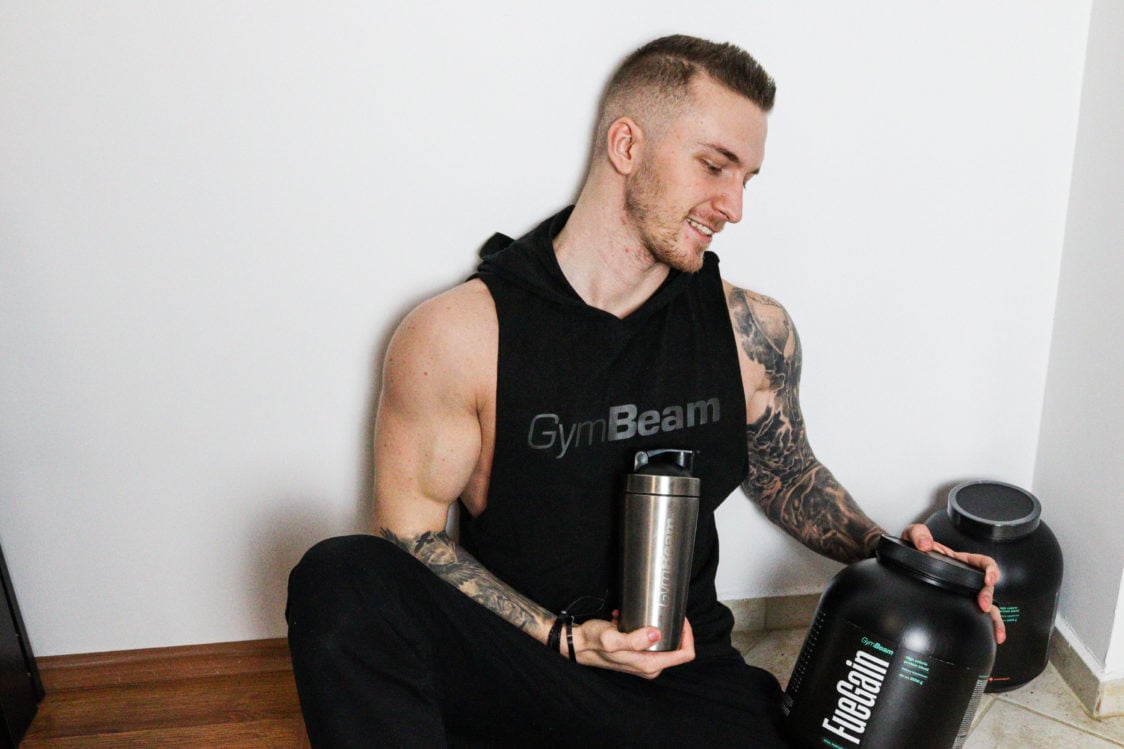
What dietary supplements to consider after endurance sports?
- Carbohydrates: maltodextrin, the patented carbohydrate Vitargo or the complex supplement FueCarb, which contains minerals (electrolytes) in addition to carbohydrates, will facilitate your carbohydrate intake.
- Easily digestible protein: whey or plant-based protein, amino acids in the form of a BCAA drink or EAA instant mix.
- Complex liquid nutrition: a gainer that contains a combination of protein and carbohydrates is just perfect. [5–9]
Learn more about nutritional supplements for endurance athletes in our article 11 Best Nutritional Supplements for Running, Cycling and Other Endurance Sports.
What other post-workout supplements can athletes include to support recovery?
- Electrolytes: They help replenish magnesium, sodium, potassium, chloride and other minerals that are lost from the body through sweat and are important for muscle function and overall health.
- Omega 3: Helps to reduce inflammation and post-workout muscle damage. Promotes regeneration.
- Creatine: In quantities of 3 – 5g, it will support the regeneration of energy sources efficiently. [8–9]

What should the ideal post-workout meal contain?
If you have managed to drink liquid food after a workout, you don’t have to rush to eat. Otherwise, it’s fine to have a meal within two hours post your workout. When you prepare it, keep in mind that it should contain a serving of protein, carbohydrates and a smaller amount of fat. If you also add fruit and vegetables, you will increase the vitamin and mineral content.
1. Protein after a workout
It will help replenish amino acids, which the body will then use to repair and build muscle mass. It will also promote satiety, so your meal will satisfy you for longer. [10]
- Good proteins: lean meat, fish, tofu, tempeh, eggs, egg whites, a scoop of protein.
2. Carbs after a workout
Thanks to carbohydrates, you replenish energy in the form of glycogen. Ideal are complex carbohydrates that are released gradually and keep you full for a longer period of time. [10]
- Good carbohydrates: Oats, rice, quinoa, couscous, pasta, potatoes, sweet potatoes, bulgur, tortilla, or whole grain bread.
Carbohydrates can also be found in fruit and vegetables. These are a source of fast sugars (especially fruit), fibre, vitamins, and minerals. After a workout, you will replenish important micronutrients that contribute to the maintenance of immune function and the smooth running of the whole body.
- After a workout, a banana, peeled apple, pear, or orange will come in handy to give you a quick supply of sugars.
- Amongst the vegetables, chopped lettuce, spinach, peeled cucumber or even steamed carrots, zucchini, aubergines tomatoes are suitable for better absorption.
- Have a smaller portion of these superfoods and save the rest for another time of the day.
If you are wondering what fruits and vegetables contain and whether they lose beneficial substances during freezing, read our article Are Fresh Fruits and Vegetables Healthier than Frozen and Canned?
3. Fats after a workout
Fats in general are important for vitamin absorption and are also involved in maintaining hormonal health. However, be more careful with the amount of fat you consume after a workout. In excess, they could slow down the digestion of other nutrients you need to get to your muscles as soon as possible. But if you’ve already managed to drink your post-workout nutrition, you don’t have to worry as much about more fat.
- Good fats: nut butter, olive oil, oil spray, ghee, coconut oil. [10]

Tips for the best meals after strength and endurance training
The following meals are simple to prepare and can be made before you say the word “recovery”. You can use them for meal prep and just reheat them after your workout.
1. Porridge with protein and nut butter
A lot of people love oat, rice or buckwheat porridge. It is simple to prepare, easy to digest, and if you mix in a protein, a piece of your favourite fruit, and a teaspoon of peanut butter, you get a complex meal. The aforementioned rice porridge is the fastest to digest, so it can be an ideal post-workout option.
Get inspired with our recipes:
2. Eggs with bread and vegetables
Eggs are a favourite food with a high content of valuable nutrients. However, they have a higher fat content in the yolk, so it is better to combine whole eggs with egg whites. Prepare them boiled or scrambled. Try an omelette, or egg muffins. Add wholemeal bread as a source of carbohydrates and some fresh vegetables to get valuable vitamins and minerals.
If you want to learn more about eggs, read our article 10 Reasons to Eat Eggs.
3. Yoghurt with muesli or granola and fruit
There’s nothing easier than grabbing 0% white or Greek yoghurt from the fridge, topping it with your favourite granola or muesli and adding a sliced banana. In no time at all, you’ll have a tasty snack that’s sure to fill you up. The yoghurt also goes perfect with oats and a few nuts and freeze-dried fruit.
If you want to try something new and refreshing, check out our recipe Frozen Yoghurt with Fruit, Chocolate Granola and Nuts.

4. Fruit smoothie with protein, yoghurt or cottage cheese
A smoothie is the ideal choice when you don’t have time to prepare a larger meal and need an easily digestible source of nutrients. But during preparation be careful not to forget anything or overdo it with the amount of fruit.
How to prepare a balanced smoothie?
- Choose a fluid – plain water, milk, vegetable drink (almond, soy, rice) or coconut water.
- Add one serving of fruit – banana, kiwi, pear, peach, blueberries, raspberries.
- Add protein – protein powder, low-fat yogurt or cottage cheese.
- Choose a source of fat – peanut, almond, cashew or other nut butter.
- Add some sweetness – cinnamon, cocoa, low calorie syrup or other sweetener.
You can also take inspiration from our recipe: Refreshing Forest Fruit Protein Smoothie
5. Protein waffles or pancakes with fruit
If you’re a lover of sweet foods, protein-packed pancakes or waffles are sure to please your palate. And you can eat these foods not only for breakfast! Feel free to enjoy some pancakes after your workout and they will help you replenish all the important nutrients. For the quickest and easiest preparation, reach for a protein waffle and pancake mix. Then serve them with yogurt, a dollop of nut butter and fresh fruit or jam.
You can try:
6. Bread with quality ham, cheese or spread
You’ll appreciate sliced bread or a bagel with cheese or spread when you don’t have time to prepare a hot meal. Good quality ham, low-fat cheese or sliced tofu are ideal for bread, ideally wholemeal. Homemade spreads with tuna, sardines or eggs are also great. Just be careful how much fat you add to the spreads.
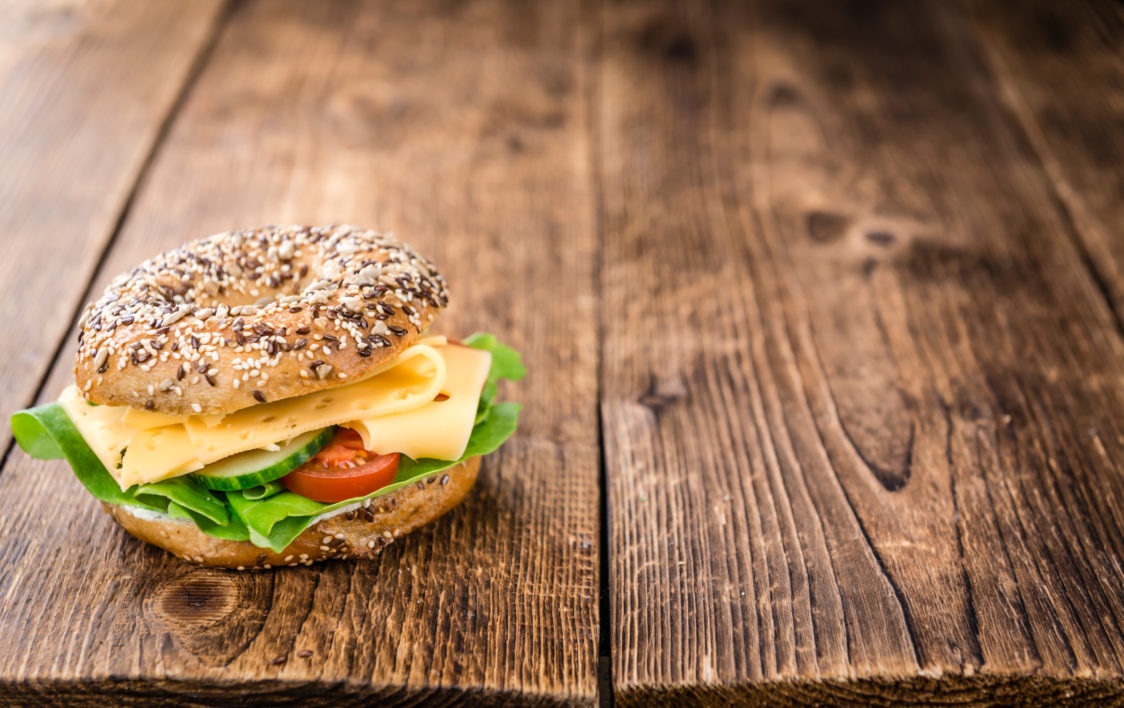
7. Lean meat or fish with sides and vegetables
You don’t have to spend hours in the kitchen if you want a hot meal after your workout. Fish or chicken dishes, including side dishes and vegetables, can be done in thirty minutes. If you can’t manage to cook after your workout, prepare your food ahead of time and then simply reheat it.
Hunger after a workout will bring the taste for the following:
- Juicy Chicken Breasts in Orange Sauce
- Baked Chicken Caprese
- Creamy Tagliatelle Pasta with Salmon and Ricotta
8. Plant-based meat alternatives with side dishes and vegetables
You will appreciate these meals whether you are a fan of a plant-based diet or would like to diversify your diet. You can try tofu, tempeh or seitan. The advantage is that you don’t have to cook tofu or tempeh. However, they usually taste better sautéed in a pan with spices and vegetables. Quinoa, rice, pasta, or gnocchi are also a good choice.
Try our recipes and see for yourself that tofu or tempeh can taste really great.
Try for example:
- Pumpkin Curry with Baked Tofu and Jasmine Rice
- Pad Thai Noodles with Tempeh and Fresh Vegetables
- Pumpkin Gnocchi with tofu and Spinach
9. Wrap with chicken meat or tuna and vegetables
When you come home hungry after your workout, you can prepare a tasty wrap in a few minutes. Just take a tortilla, wrap it with roasted chicken or tuna, chopped vegetables, add yogurt or avocado dip and you’re done. If you add some cheese to the wrap and let it bake for a while in a panini grill, oven or microwave, you’ll get a decicious meal.
You can find inspiration in our fitness recipes:
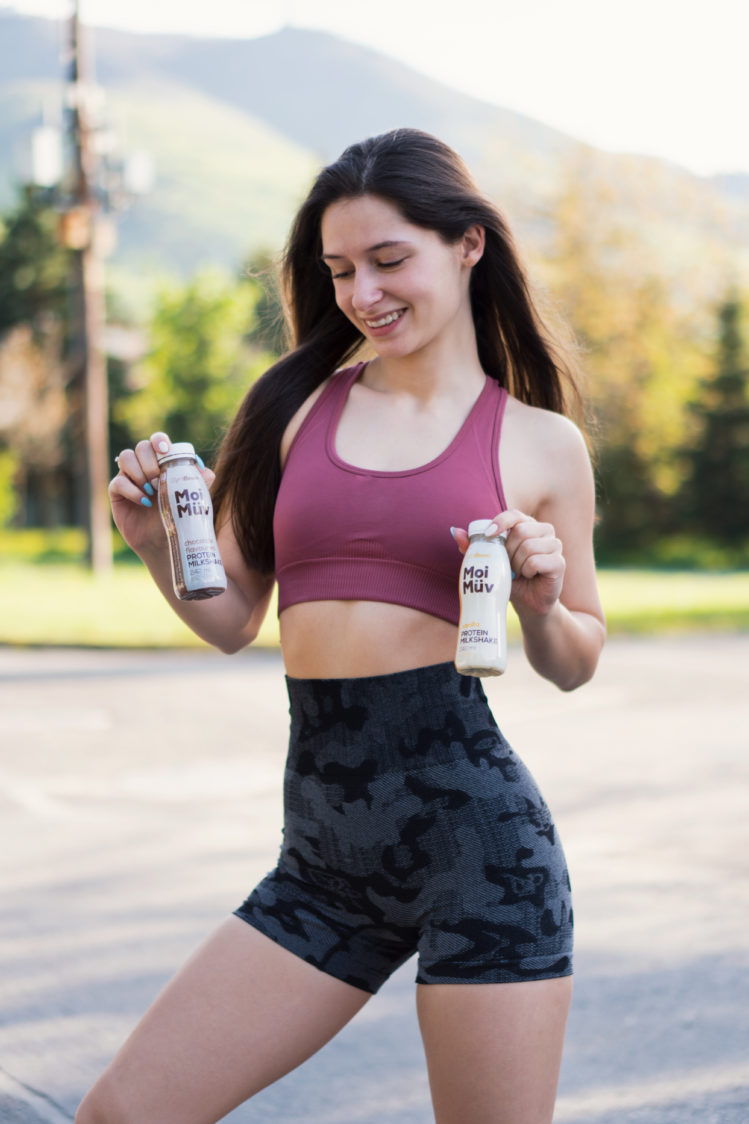
10. Fitness cake or mug cake
You can also enjoy a post-workout cake or mug cake after a gym session or run. If you make it with wholemeal flour, use less fat and sugar, and enrich it with a protein powder or cottage cheese, you’ll have a healthy and nutritious meal.
Try for example:
11. Bonus point: Quick post-workout snacks
Various snacks containing both carbohydrates and protein are also a great way to stave off post-workout hunger. You can carry them in your sports bag and have them available at any time. You can use these snacks when you can’t eat right after a workout or need a quick source of energy. Always keep an eye on the ingredients when it comes to these goodies. Some of them might have too much fat or lack some of the nutrients, but you can solve this by adding protein or fruit.
Tips for post-workout snacks:
What should you remember?
Food and supplements after a workout play an important role in nutrition. They will help you fight off hunger and support your efforts and goal achievement. Right after a workout, it is easiest to choose a post-workout protein drink containing a source of carbohydrates. This will replenish important nutrients in no time, which will restore your energy stores and speed up your recovery.
Then you can prepare one of the mentioned meals, which are perfectly suitable after strength workout, running or cycling. If everything fits well into your daily nutrient intake, you will maximally support your sporting performance and training ambitions.
If you liked this article and took away useful information, please share it with your friends. Thanks to this, they will also learn what food is ideal to prepare after a workout.
[1] All About Post-Workout Nutrition—Precision Nutrition. – https://www.precisionnutrition.com/about-post-workout-nutrition
[2] Postexercise Recovery. Proper Nutrition Is Key to Refuel, Rehydrate, and Rebuild After Strenuous Workouts. – https://www.todaysdietitian.com/newarchives/110413p18.shtml
[3] Carbs help the body recover after intense workout. – https://www.medicalnewstoday.com/articles/315921
[4] Bodybuilding.Com. The Importance Of Post-Workout Nutrition! – https://www.bodybuilding.com/content/the-importance-of-post-workout-nutrition.html
[5] Kerksick, C. M., Arent, S., Schoenfeld, B. J., Stout, J. R., Campbell, B., Wilborn, C. D., Taylor, L., Kalman, D., Smith-Ryan, A. E., Kreider, R. B., Willoughby, D., Arciero, P. J., VanDusseldorp, T. A., Ormsbee, M. J., Wildman, R., Greenwood, M., Ziegenfuss, T. N., Aragon, A. A., & Antonio, J. International society of sports nutrition position stand: Nutrient timing. – https://doi.org/10.1186/s12970-017-0189-4
[6] Poole, C., Wilborn, C., Taylor, L., & Kerksick, C. The Role of Post-Exercise Nutrient Administration on Muscle Protein Synthesis and Glycogen Synthesis. – https://www.ncbi.nlm.nih.gov/pmc/articles/PMC3761704/
[7] Jäger, R., Kerksick, C. M., Campbell, B. I., Cribb, P. J., Wells, S. D., Skwiat, T. M., Purpura, M., Ziegenfuss, T. N., Ferrando, A. A., Arent, S. M., Smith-Ryan, A. E., Stout, J. R., Arciero, P. J., Ormsbee, M. J., Taylor, L. W., Wilborn, C. D., Kalman, D. S., Kreider, R. B., Willoughby, D. S., … Antonio, J. (2017). International Society of Sports Nutrition Position Stand: Protein and exercise. – https://doi.org/10.1186/s12970-017-0177-8
[8] ISSA.7 Supplements for Muscle Recovery. – https://www.issaonline.com/blog/index.cfm/2021/7-supplements-for-muscle-recovery
[9] Rawson, E. S., Miles, M. P., & Larson-Meyer, D. E. Dietary Supplements for Health, Adaptation, and Recovery in Athletes. – https://doi.org/10.1123/ijsnem.2017-0340
[10] Pramuková, B., Szabadosová, V., & Šoltésová, A. Current knowledge about sports nutrition. – https://doi.org/10.4066/AMJ.2011.520

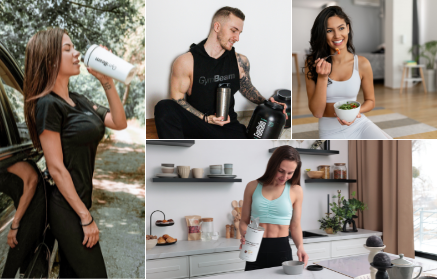
Add a comment